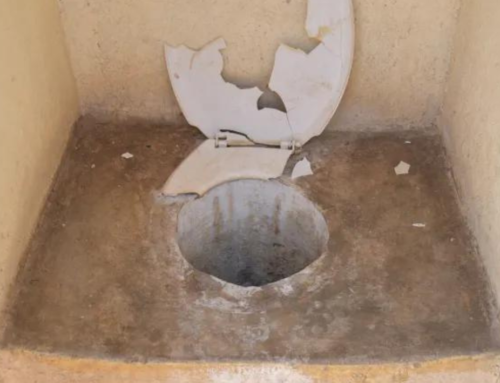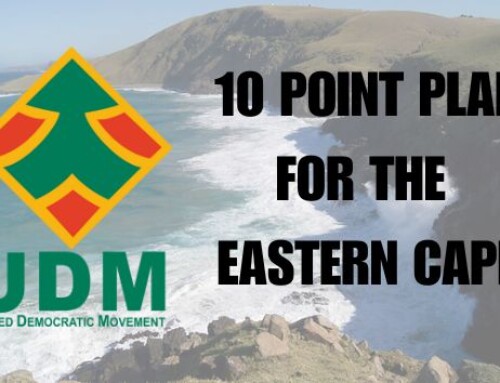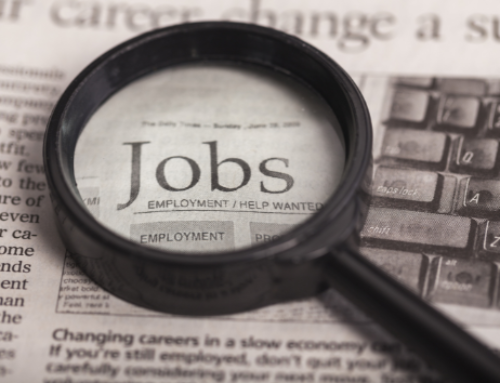Thank you for affording the United Democratic Movement (UDM) the opportunity to participate in this meeting and contribute to a discussion that will hopefully find lasting solutions to the current impasse at our higher education institutions.
1. Introduction
During the first democratic elections in South Africa in 1994, I was privileged to be chosen as part of the Top 8 persons who campaigned for the African National Congress (ANC). We crossed the length and breadth of the Country and I personally addressed over a 105 rallies in our villages, towns and cities from January to April that year.
At all of these electioneering events, the issue of free education took centre stage. Based on this election promise, amongst others, the ANC was voted into power and thus given a mandate to fulfil the election promises it made.
When the ANC made its assurances in 1994, it did not qualify its promise of free education by saying it would only include a certain group of people. No, it was free education for all.
Sadly, 22 years after the fact, young South Africans still do not have access to free education. Instead we see our youth violently protesting the state of affairs at a cost of around R600 million to the public purse thus far.
Although the UDM condemns the damage to public and private property in no uncertain terms, we cannot help but have some sympathy with our students’ plight.
The ANC has been in power for more than two decades and has yet to fulfil the mandate given to it by the people. To further confuse matters, the security cluster chooses to mislead the nation and hide behind conspiracy theories; alleging that a “third force” is at work. The UDM rejects these excuses outright.
2. The Fees Must Fall campaign and the work of the Fees Commission
As a result of the ANC’s empty promises, we are now facing a very dangerous situation where our children have taken matters into their own hands. It is worthwhile to note that, during the past century, it has been students who affected change in their countries – the protest action of students in Egypt, in the past few years, is a good example.
In response to the Fees Must Fall campaign, President Zuma instituted a commission of inquiry into the broader issues affecting the funding of higher education i.e. the Fees Commission.
However, instead of waiting for the outcome of the Commission’s investigation, the Minister of Higher Education and Training, Mr Blade Nzimande, has now announced interim measures, effectively suggesting that university councils may increase tuition fees to a maximum of 8% for the 2017 academic season. This has been touted as the maximum that government can afford to cover poor students and the so-called “missing middle”.
These interim measures could, however, be perceived as pre-emptive to the work of the Fees Commission and borders on undermining the process.
In addition, such interim measures provide no lasting solution to the current crisis. It is unsustainable.
The UDM suggests that fee increases should be halted pending the outcome of the work of the Fees Commission. If there is an urgent need to make funding available, let government take the funds being wasted on non-priority issues and divert those to higher education.
3. Turning higher education into a political football
The genuine demand for free, and quality, higher education has unfortunately been turned into a political matter, which is effectively being abused by the contending factions of the ruling alliance.
South Africa cannot afford a situation where education is used to settle political scores within the ANC. We desperately need strong higher education institutions that produce students with the relevant skills for our socio-economic development.
4. Higher education and its role in the economy
We have one of the most unequal societies in the world and our economy is not growing. An educated and healthy citizenry is needed to grow and develop our economy so that we are capacitated to eradicate poverty and inequality, and to generate employment.
Higher education is a social mobility mechanism, which both the poor and middle strata sees as a ladder into an affluent society. In other words, getting a degree is a passport to employment and a better life.
The UDM has confidence in the Fees Commission’s process as spearheaded by leaders in academia and broader society.
5. The poor must have access to higher education
The UDM believes that special attention should be paid to poor students who are unable, or is struggling, to pay their tuition fees.
We agree that subsidies for the children of domestic workers, or worse, unemployed persons, cannot be the same as those for the children of advocates, doctors and investment bankers. The reality is that there are those deserving students who need to be totally subsidised by government.
The lack of such support is the reason why, in part, students are still up in arms and toyi-toying, resulting in the closure of many campuses on the eve of final exams.
6. Finding a sustainable, lasting solution to the crisis
Nobody wants to see an escalation of campus violence and vandalism, which destroys the assets invested to educate our future leaders.
The UDM believes that it is possible to make higher education accessible to all and that this has to be done.
In order to do so, we require ethical leadership from all stakeholders, including those dealing with law and order. The UDM therefore lauds the open and honest dialogue amongst all stakeholders to find a way forward.
In addition, the UDM calls upon the private sector to look into other ways of increasing their financial support to students in order to make education affordable to the poor and the working class.
Government, on the other hand, must stop splashing public money on wasteful and unproductive expenses.
Just this past week, we heard that government departments have not yielded to Finance Minister Pravin Gordhan’s call to save money and cut costs. It was reported that R35,2 billion was spent on consultants, travel, catering and entertainment. The UDM has long held the view that the continuous outsourcing of government work, which ought to be done by civil servants, is expensive and perpetuates poor service delivery.
As a crisis measure, the Finance Director General should convene an urgent meeting with all other Directors General to place a moratorium on wasteful expenditure. In so doing, government can start channelling saved funds into higher education, other needy areas, in order to rescue the current situation.
The UDM also feels that the forthcoming meeting of stakeholders in higher education called by President Zuma is likely to be another talk-shop. The nation expects nothing less than the release of an interim report by the Fees Commission on the work that they have done thus far. We are fed-up with useless indabas that produce no real solutions to the nation’s problems.
It is a sad fact that President Zuma has failed the country in a situation where we need his decisive leadership. We hope that the President realises that his Education Minister, with the announcement of the fees hike, is in essence undermining his decisions and pre-empting the recommendations of his Fees Commission.



















